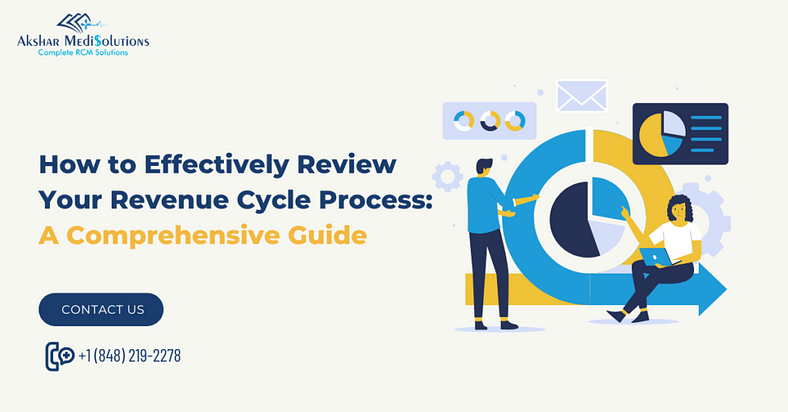How to Effectively Review Your Revenue Cycle Process: A Comprehensive Guide

In the realm of healthcare administration, ensuring an efficient revenue cycle is crucial for the financial health of any medical practice or facility. A streamlined revenue cycle management (RCM) process not only optimizes cash flow but also minimizes delays and denials, thereby improving overall operational efficiency. This guide will walk you through the steps necessary to effectively review and enhance your revenue cycle process.
Understanding the Revenue Cycle Management Process
Revenue Cycle Management (RCM) encompasses the entire patient billing and payment process within a healthcare organization. It begins from the moment a patient makes an appointment and continues through claims processing, payment, and reconciliation. Key components of RCM include:
- Patient Scheduling and Registration: Ensuring accurate patient information collection.
- Charge Capture: Recording all billable services provided to patients.
- Claims Submission: Transmitting claims to insurance payers promptly and accurately.
- Payment Posting: Recording and reconciling payments received from patients and payers.
- Denial Management: Addressing and appealing claim denials promptly to avoid revenue loss.
Steps to Review Your Revenue Cycle Process
1. Gather Data and Metrics:
Start by collecting relevant data on key performance indicators (KPIs) such as:
- Days in Accounts Receivable (A/R): Average time it takes to receive payment.
- Percentage of Clean Claims: Claims processed without errors or rejections.
- Denial Rate: Percentage of claims denied by payers.
Utilize RCM software or systems to extract these metrics efficiently.
2. Perform a Gap Analysis:
- Compare your current performance metrics with industry benchmarks or previous periods.
- Identify gaps or areas where performance falls short of expectations.
- Focus on high-denial areas or bottlenecks in the revenue cycle.
3. Review Workflow and Processes:
- Evaluate each stage of the revenue cycle process from patient intake to payment collection.
- Ensure that workflows are standardized and documented to minimize errors and delays.
- Implement best practices for charge capture, claims submission, and payment posting.
4. Optimize Denial Management:
- Establish a robust denial management process to address and resolve claim denials promptly.
- Analyze common denial reasons and implement corrective actions.
- Train staff on effective denial prevention and resolution techniques.
5. Utilize Technology and Automation:
- Leverage RCM software solutions for automating repetitive tasks such as claims submission and payment posting.
- Implement electronic health record (EHR) integrations to streamline data exchange and billing processes.
- Ensure your technology infrastructure supports secure data transmission and compliance with healthcare regulations.
6. Educate and Train Staff:
- Provide ongoing training to billing and administrative staff on changes in billing codes, payer policies, and regulatory requirements.
- Foster a culture of accountability and continuous improvement within your revenue cycle team.
7. Monitor and Measure Results:
- Regularly monitor performance metrics and KPIs post-implementation of process improvements.
- Track the impact of changes on cash flow, A/R days, and denial rates.
- Make adjustments as necessary to optimize revenue cycle efficiency continuously.
You can also read: Top 5 Ways to Optimize Hospital Revenue Cycle Management
Conclusion
Effective revenue cycle management is essential for healthcare organizations seeking to maximize revenue and minimize financial risks. By conducting regular reviews of your revenue cycle process, identifying areas for improvement, and implementing strategic changes, you can achieve greater efficiency, reduce denials, and enhance overall financial performance. Investing in technology, training, and process optimization will position your medical practice or facility for sustained success in a competitive healthcare landscape.
For expert guidance and support in Revenue Cycle Management, Denial Management Services, and more, consult with a trusted Medical Billing Company. Contact Akshar MediSolutions today to learn how we can help streamline your revenue cycle and optimize financial outcomes.



Comments
Post a Comment